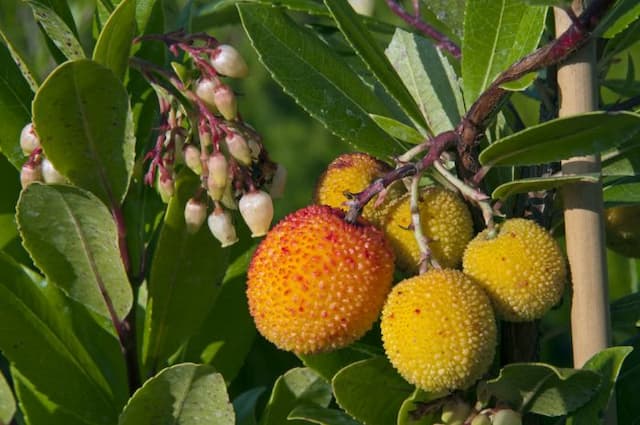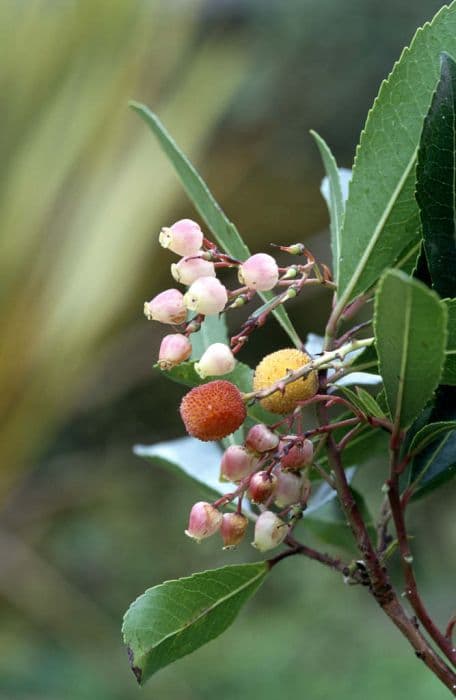Heather 'Silver Knight' Calluna vulgaris 'Silver Knight'

ABOUT
'Silver Knight' is a vigorous, neat, small evergreen shrub with few side shoots and downy silver-grey foliage tinted purple in winter. It bears characteristic upright spikes of small lavender flowers in late summer to early autumn, August to September
About this plant
 Names
NamesFamily
Ericaceae
Synonyms
Heather, Scotch Heather, Ling
Common names
Calluna vulgaris 'Silver Knight'.
 Characteristics
CharacteristicsLife cycle
Perennials
Foliage type
Evergreen
Color of leaves
Grey-green
Flower color
Purple
Height
1-2 feet [30-60 cm]
Spread
1-2 feet [30-60 cm]
Plant type
Shrub
Hardiness zones
5
Native area
Europe
Benefits
 General Benefits
General Benefits- Drought Resistance: Calluna vulgaris 'Silver Knight', commonly known as Heather, can tolerate periods of dry weather once established, requiring less frequent watering.
- Low Maintenance: Heather generally requires minimal care after planting, making it a good choice for gardeners seeking low-effort landscaping options.
- Erosion Control: The plant's dense growth habit helps stabilize soil and prevent erosion on slopes and banks.
- Winter Interest: With its evergreen foliage and late-season blooms, Heather adds color and texture to the garden even during winter months.
- Attracts Wildlife: Heather flowers are rich in nectar, attracting bees, butterflies, and other pollinators, which can help increase the biodiversity in your garden.
- Ground Cover: The low-growing, spreading nature of Heather makes it an excellent ground cover plant, helping to suppress weeds and cover bare spots in the landscape.
- Versatile Design Use: Its compact size and ornamental appeal make it suitable for various garden designs, including rock gardens, borders, and container planting.
- Tolerance to Poor Soils: Heather can thrive in a range of soil types, including acidic and low-fertility soils, where other plants may struggle.
- Deer Resistance: The plant is relatively resistant to deer, which can be beneficial in areas where deer browsing is a common problem for gardeners.
- Color Variety: Different cultivars of Heather, including 'Silver Knight', offer a range of foliage colors and textures, adding visual variety to the landscape.
 Medical Properties
Medical Properties- This plant is not used for medical purposes.
 Air-purifying Qualities
Air-purifying QualitiesThis plant is not specifically known for air purifying qualities.
 Other Uses
Other Uses- Photography Prop: Heather can be used to create appealing backgrounds or settings for photographing insects, small animals, or for macro photography.
- Insect Habitat: Dense, low-growing heather plants create an excellent habitat for beneficial garden insects like bees and butterflies.
- Floral Arrangements: Dried heather flowers are commonly used in floral arrangements for their long-lasting color and texture.
- Train and Model Landscapes: Hobbyists use heather to simulate trees and bushes in miniature train sets and model landscapes due to their scale-like appearance.
- Crafting Material: Heather stems and flowers are used in crafting wreaths, ornaments, and other rustic decorations.
- Scented Sachets: Heather's subtle scent can be harnessed in potpourri or sachets to naturally freshen and gently perfume linen closets or drawers.
- Fauna Shelter: Heather plants provide cover for ground-nesting birds and a safe retreat for small mammals.
- Natural Dye: Heather can be used to produce natural dyes for fabrics or yarn, offering shades of yellow, green, and brown depending on the mordant.
- Erosion Control: Heather is often planted on slopes or hillsides to help prevent soil erosion due to its extensive root system.
- Ground Cover: Heather serves as a low-maintenance ground cover, providing color and texture to landscapes without requiring frequent upkeep.
Interesting Facts
 Feng Shui
Feng ShuiHeather is not used in Feng Shui practice.
 Zodiac Sign Compitability
Zodiac Sign CompitabilityHeather is not used in astrology practice.
 Plant Symbolism
Plant Symbolism- Protection: Calluna vulgaris, commonly known as Heather, is traditionally associated with protective qualities. 'Silver Knight' Heather, with its resilient and hardy growth, symbolizes a guard against danger and a shield from the perils of the outside world.
- Good Luck: Heather is often considered a lucky charm. Carrying a sprig of Heather, especially when embarking on a journey, is believed to bring good fortune and success.
- Admiration: With its delicate purple blooms, Heather also conveys admiration and beauty. Presenting 'Silver Knight' Heather can express one's appreciation for another's qualities.
- Solitude: Due to its natural habitat in remote moorlands, Heather carries connotations of solitude and the ability to thrive in challenging conditions. Thus, this plant can be a symbol of independence and self-sufficiency.
 Water
WaterHeather (Calluna vulgaris 'Silver Knight') should be watered regularly to maintain moist but not waterlogged soil. During the growing season, water the plant deeply once every week with roughly 1 gallon of water, adjusting the frequency to account for rain, heat, and soil condition. In winter, reduce watering but do not let the soil dry out completely, which might mean watering with around half a gallon every two weeks, depending on the climate. Always check the top inch of soil for dryness before watering, as overwatering can lead to root rot.
 Light
LightHeather thrives in full sun to partial shade. The best spot for Heather (Calluna vulgaris 'Silver Knight') would be where it can receive at least 6 hours of direct sunlight daily. If grown indoors, a south-facing window is ideal. However, in regions with very hot summers, some afternoon shade will help protect the plant from scorching.
 Temperature
TemperatureHeather is quite hardy. Calluna vulgaris 'Silver Knight' prefers a temperature range between 40 and 70 degrees Fahrenheit and can survive short periods as low as 20 degrees and as high as 80 degrees Fahrenheit. Protect the plant from extreme temperatures by providing insulation or shade, depending on the season.
 Pruning
PruningPrune Heather (Calluna vulgaris 'Silver Knight') mainly to shape the plant and encourage bushy growth. It's best to prune after flowering has finished, usually in late winter or early spring. Cut back the previous year's growth by no more than one-third. Regular pruning each year will prevent the plant from becoming woody and bare at the base.
 Cleaning
CleaningAs needed
 Soil
SoilHeather, commonly known as Calluna vulgaris 'Silver Knight', thrives best in well-draining, acidic soil with a pH between 4.5 and 5.5. An ideal soil mix can be created with 1 part peat moss, 1 part coarse sand, and 1 part perlite or pine bark fines to ensure good aeration and drainage.
 Repotting
RepottingHeather should be repotted infrequently, roughly every 3 to 4 years, as it prefers to be somewhat root-bound. It's important to use an acidic soil mix during repotting to maintain the low pH levels this plant needs.
 Humidity & Misting
Humidity & MistingHeather (Calluna vulgaris 'Silver Knight') prefers moderate humidity levels, but it is quite adaptable and can tolerate a range of humidity conditions typical of temperate climates.
 Suitable locations
Suitable locationsIndoor
Place in bright, indirect light and maintain acidic soil pH.
Outdoor
Plant in partial shade, acidic soil, and shelter from harsh winds.
Hardiness zone
4-7 USDA
 Life cycle
Life cycleThe Scotch heather 'Silver Knight' begins its life cycle as a seed that germinates in moist, well-drained acidic soil in early spring. The seedling emerges and develops into a young plant with silver-gray foliage, and as it matures, it forms a woody base typical of heathers. Throughout the growing season, it experiences vegetative growth, producing shoots and leaves, and becoming a hardy evergreen shrub. In late summer into fall, it blooms, producing small, bell-shaped lavender flowers that attract pollinators. After pollination, the flowers develop into seed capsules which release seeds, completing the reproductive cycle. During winter, Scotch heather 'Silver Knight' remains evergreen, though growth slows considerably, and it can survive harsh conditions with the help of its woody stem and evergreen leaves.
 Propogation
PropogationPropogation time
Late Summer- Autumn
Calluna vulgaris 'Silver Knight', commonly known as Heather, is most frequently propagated through semi-hardwood cuttings. This method is usually performed in late summer after the current season's growth has begun to mature. To propagate Heather using this method, cuttings of about 4 to 6 inches (10 to 15 centimeters) long are taken from healthy plants, ensuring each cutting has several nodes. The lower leaves are stripped off, and the bottom end of the cutting is often dipped in a rooting hormone to encourage root development. The prepared cuttings are then inserted into a potting mix of equal parts peat and perlite or a well-draining soil mix, ensuring that at least one or two nodes are buried in the substrate. The cuttings need to maintain a humid environment, which is why they are usually covered with a plastic bag or placed in a propagator. Roots typically develop within a few weeks to a few months, after which the new plants can be gradually acclimated to less humid conditions before potting on or planting out.









